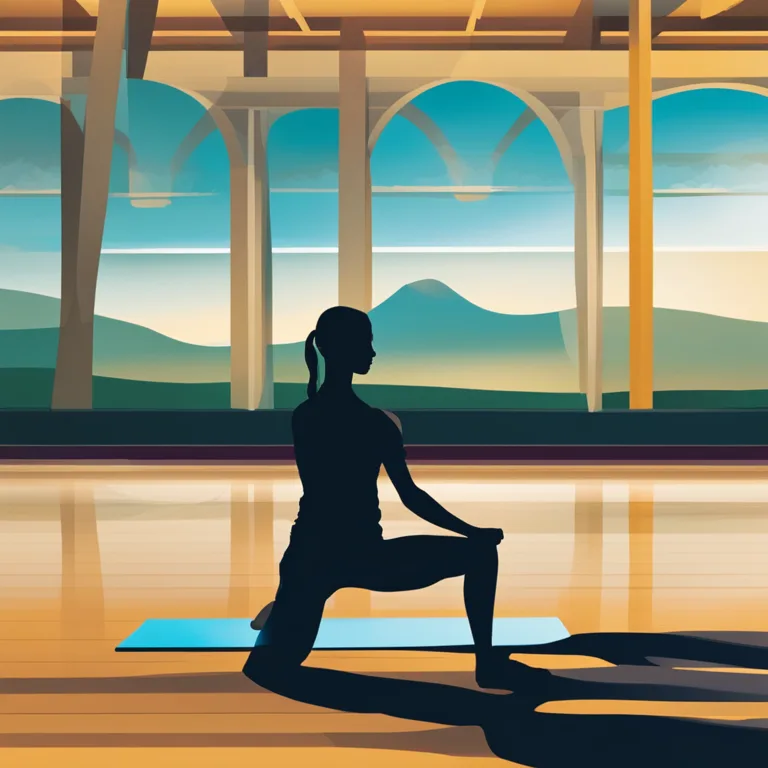
Meditative Mastery for Athletic Excellence
Discover how meditation can enhance an athlete's mental focus, control, and overall performance in this informative guide on meditation techniques for sports professionals.
article by Hina Kurosawa
Mindfulness in Motion
Meditation has transcended its traditional boundaries and found a significant place in athletics. In an environment where every millisecond counts, athletes are turning to meditation to give them a competitive edge. This holistic tool not only aids in improving focus but also helps in stress reduction, improved pain management, and better recovery times. The surge of interest in mental training methods highlights an evolving recognition of the mind-body relationship in sports. Integration of mindfulness strategies within training regimes is now considered pivotal for those seeking peak performance. As contemporary research continues to support its efficacy, meditation is fast becoming as essential to an athlete's routine as physical exercise.

The Focus Factor
If undisturbed concentration is the holy grail for athletic success, then meditation is the map that leads to it. One tried and tested method gaining popularity in the sports sector is concentrative meditation. In this practice, athletes focus on a single point of attention, such as their breath, a mantra, or even the rhythmic beat of their own heart. By doing so, they train their minds to block out distractions and sharpen their ability to concentrate during crucial moments of competition. This singular focus can be the differentiator between a good performance and a great one, especially in high-pressure scenarios where clarity and calm are paramount.

Visualization: See It, Achieve It
Visualization meditation is another powerful technique that athletes are harnessing to boost performance. Here, meticulous mental rehearsal — picturing each step of their performance in exacting detail — is key. This approach is rooted in the concept that the brain cannot distinguish between a vividly imagined event and an actual one. Consequently, visualization not only prepares an athlete mentally but can lead to neural adaptations akin to those achieved through physical practice. Engaging regularly with this technique has been shown to enhance an athlete's confidence and execution of complex physical tasks, thereby contributing to a stronger, more resilient competitive stance.

Restorative Body and Mind Practices
Athletes are no strangers to physical strain and the resulting mental stress. This is where restorative meditation practices like Yoga Nidra play a significant role. Yoga Nidra, or 'yogic sleep,' allows athletes to enter a state of deep relaxation while maintaining consciousness. It provides essential downtime for the nervous system, fostering recovery and aiding in healing processes without compromising mental sharpness. Moreover, by reducing cortisol levels and promoting parasympathetic activity, athletes can experience enhanced quality of sleep, better mood regulation, and a significant decrease in anxiety levels.

Dynamic Meditation for Active Relaxation
While some meditation practices emphasize stillness, dynamic meditation incorporates movement, making it a natural fit for athletes. Examples include walking meditation or Tai chi, where the movement itself is meditative. These practices promote mindfulness in action, emphasizing a state of flow that aligns with athletes' natural propensity for movement. Dynamic meditation teaches athletes to stay present and aware during physical activity, which not only improves performance but also helps in reducing injury rates by promoting a more profound appreciation for the body's limits and capabilities.
Building a Meditation Routine
For athletes, establishing a consistent meditation practice can be just as important as their physical training regimen. Consistency solidifies the benefits, embedding them into an athlete's neurological framework. To build a routine, experts often recommend starting with short sessions — perhaps 5 to 10 minutes — gradually increasing the duration over time. Athletes should also aim to meditate in a quiet, comfortable space where they can be undisturbed, and experiment with various techniques to find what resonates best with their personal and professional goals. With dedication, the mental advantage gained can become a cornerstone of an athlete's strategic arsenal.
Published: 12/20/2023
Modified: 12/20/2023
More predictions
Come back here soon to learn more about yourself and your future


Meditation: Unveiling The Optimal Practice Duration
Discover how much time to dedicate to mindfulness meditation for personal growth and well-being.


Mindful Sketching: Blending Art With Presence
Delve into the serene practice of meditation and mindfulness drawing to foster inner peace and creative expression.


Beginner's Guide To Mindful Meditation
Discover key steps to starting your journey into mindfulness meditation with this beginner-friendly guide.